Discus Fish Water Parameters: Welcome to my comprehensive guide on maintaining the perfect water parameters for your discus fish tank. As a discus fish enthusiast and professional aquarist, I understand the importance of providing the best living conditions for these beautiful creatures. By implementing ideal water parameters, you can ensure the health and vibrancy of your discus fish.
Table of Contents
Key Takeaways:
- Proper water parameters ensure the health and well-being of your discus fish.
- Maintaining the correct pH level, water temperature, and ammonia, nitrate, and nitrite levels is crucial.
- A well-designed discus fish tank setup is essential for promoting their overall health and happiness.
- Regular maintenance, including water changes and filtration maintenance, is necessary for optimal water conditions.
- Following these guidelines will help you create a vibrant and healthy discus fish tank.
Importance of Discus Fish Water Parameters
The ideal water parameters for discus fish are essential for maintaining their health and happiness. Even slight deviations can cause stress and affect their immune system, leading to potential health problems.
When it comes to discus fish, water quality is of utmost importance. It all begins with the water source, which should be free of chlorine, chloramines, and other contaminants. After that, maintaining the water parameters at the ideal levels is key to keeping your fish happy and healthy.
Let’s take a closer look at the ideal water parameters for discus fish:
| Parameter | Ideal Range |
|---|---|
| pH level | between 6.0 and 7.0 |
| Water temperature | between 82°F and 86°F |
| Ammonia levels | less than 0.25 ppm |
| Nitrate levels | less than 40 ppm |
| Nitrite levels | less than 0.5 ppm |
The pH level of the water should be between 6.0 and 7.0. Discus fish prefer slightly acidic water, and maintaining this pH range is essential to keep them healthy.
The water temperature should be between 82°F and 86°F, which is the temperature range in their native environment. Maintaining the right water temperature will help keep your fish stress-free and healthy.
Ammonia build-up can be extremely harmful to discus fish, leading to stress and even death. It is crucial to maintain low levels of ammonia in your tank, which should be less than 0.25 ppm. Regular water changes and an effective filtration system can help prevent ammonia spikes.
Elevated nitrate and nitrite levels can also be harmful to discus fish, potentially causing health problems. It is crucial to maintain nitrate levels below 40 ppm and nitrite levels below 0.5 ppm. Regular testing and appropriate water changes can help keep these levels in check.
By maintaining these optimal conditions, you can create a thriving environment for your discus fish, promoting their health and longevity.
pH Level for Discus Fish
Discus fish need slightly acidic water conditions to thrive. The pH level of your tank water plays an important role in creating a suitable environment for these delicate fish. Ideally, you should maintain the pH level between 6.0 and 7.0 to ensure optimal conditions for your discus fish. Anything above or below this range can cause stress, impact their immune system, and even lead to death.
To measure the pH level of your water, you can use a pH test kit. The kit will give you a numerical reading to help you identify the current pH level of your tank. To adjust the pH level, you can use pH adjusters available in fish stores or online. Be sure to follow the instructions carefully and make gradual changes instead of sudden drastic ones to avoid stressing your fish.
Tip: When setting up your discus fish tank, make sure to choose appropriate substrate, decor, and plants that don’t significantly alter the pH level. Also, avoid using any chemicals or medications that can affect your pH level.
Water Temperature for Discus Fish
As mentioned in previous sections, maintaining optimal conditions in your discus fish tank is crucial for their health. Water temperature is no exception. Discus fish are native to warm waters, so it is crucial to keep their tank at the right temperature. The recommended range for discus fish water temperature is between 82°F and 86°F. This range helps ensure optimal metabolism and overall well-being for these fish.
When the water temperature is too low, discus fish can become stressed and vulnerable to disease. On the other hand, if the water is too warm, it can lead to a decrease in oxygen levels, which can also be harmful. Therefore, it is essential to monitor and maintain the optimal temperature range for your discus fish.
Regularly check your tank’s temperature to ensure it stays within the optimal range. You may need to use a heater to keep the water temperature consistent, especially if your home’s temperature fluctuates. Avoid abrupt temperature changes, as this can cause stress to your discus fish.
Aside from monitoring the temperature, you should also keep the tank’s surroundings in mind. Avoid placing the tank near windows or areas with direct sunlight or drafts, as this can affect the water temperature.
Recommended Water Temperature Ranges for Various Discus Fish Species
| Discus Fish Species | Recommended Water Temperature Range (°F) |
|---|---|
| Blue Discus | 82-86 |
| Heckel Discus | 82-86 |
| Turquoise Discus | 82-86 |
| Red Melon Discus | 82-86 |
Keep in mind that some discus fish species may have slightly different temperature requirements, so it’s important to research your specific species to ensure you’re providing the best care.
By understanding the importance of water temperature and maintaining the recommended range, you can help ensure the health and happiness of your discus fish.
Ammonia Levels for Discus Fish
As a conscientious discus fish owner, maintaining water quality is of utmost importance to ensure optimal conditions for your fish. High levels of ammonia in your discus fish tank can be extremely harmful, leading to stress and even death.
That’s why it’s crucial to monitor and maintain low ammonia levels in your tank. Testing your water regularly for ammonia levels is the first step. Ammonia is a natural byproduct of fish waste, so the more fish you have in your tank, the more waste is produced, and the higher the chances of an ammonia spike.
The following are some effective methods to prevent ammonia spikes and maintain optimal water quality:
1. Regular Water Changes
Performing regular water changes is one of the most effective ways to remove excess ammonia from your discus fish tank. You should aim to change between 20 to 25% of the water in your tank every week, depending on the number of fish and the size of your tank.
2. Use a Quality Filter
A high-quality filtration system is essential to keep your tank water free from toxins. Bio-filters and mechanical filters are great options that remove harmful bacteria and debris while promoting healthy bacteria growth.
3. Consider Adding Live Plants to Your Tank
Live plants are beneficial as they help to naturally purify the water and remove toxins like ammonia and nitrate. They also provide oxygen and essential nutrients for your discus fish.
4. Feed Your Discus Fish Sparingly
Overfeeding your discus fish can lead to excess waste in your tank and contribute to high ammonia levels. Feed them only the amount of food they can eat in 5-10 minutes, a few times a day, depending on their size and appetite.
Nitrate and Nitrite Levels for Discus Fish
Nitrate and nitrite levels are important factors to consider when maintaining water quality for discus fish, as elevated levels can lead to stress and sickness. It is recommended to keep nitrate levels below 30 ppm and nitrite levels at 0 ppm. Regular testing and appropriate water changes can help keep these levels in check and ensure optimal discus fish tank conditions.
Recommended Nitrate and Nitrite Levels
| Parameter | Ideal Range |
|---|---|
| Nitrate Levels (NO3-) | Below 30 ppm |
| Nitrite Levels (NO2-) | 0 ppm |
It’s important to note that high nitrate and nitrite levels can also indicate issues with filtration or overfeeding. Proper tank maintenance such as regular water changes and filter cleaning can help prevent elevated levels. By maintaining optimal water parameters and keeping an eye on nitrate and nitrite levels, you can ensure the health and well-being of your discus fish.
Ideal Water Parameters for Discus Fish
When it comes to maintaining a healthy and vibrant discus fish tank, ideal water parameters are crucial. By understanding and maintaining a balance between various water parameters, you can create the perfect environment for your discus fish to thrive in.
Optimal pH Level for Discus Fish
The ideal pH level for your discus fish tank should be between 6.0 and 7.0. Discus fish thrive in slightly acidic conditions, so it is necessary to maintain this balance. You can maintain the pH level by using a pH testing kit to keep track of your water’s acidity levels. If the pH level is too low, add aquarium buffer to increase it to the preferred range. Conversely, if it is too high, use pH decreaser to lower it.
Optimal Water Temperature for Discus Fish
Discus fish require warm water for survival and optimal health. The recommended water temperature range for discus fish is between 82°F and 86°F. This temperature range also enhances the digestion of their food and enhances their overall wellbeing. You can maintain the optimal temperature range by using a submersible heater.
Optimal Levels of Ammonia, Nitrate, and Nitrite
Discus fish are highly sensitive to ammonia, nitrate, and nitrite levels in the water. Maintain low levels of these substances to keep your fish healthy and stress-free. The ideal levels of ammonia should be at 0 ppm, nitrate at 20 ppm, and nitrite at 0 ppm. You can test and monitor these levels using a water testing kit, and adjust them by performing regular water changes.
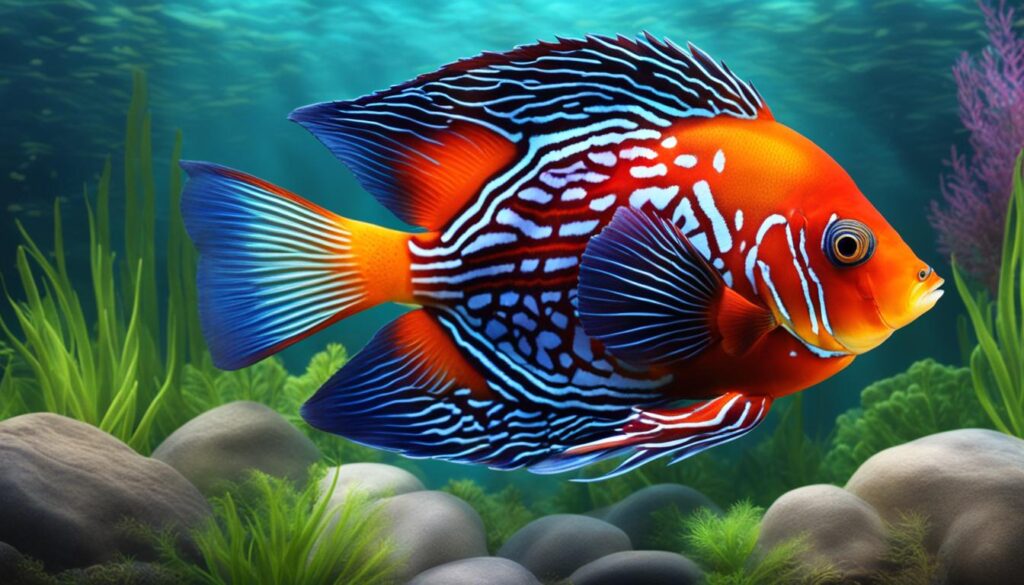
To keep your discus fish healthy, you need to maintain optimal water conditions consistently. This means monitoring the pH levels, water temperature, and substances such as ammonia, nitrate, and nitrite levels. By doing so, you’ll be able to create an environment that promotes your discus fish’s growth and good health.
Discus Fish Tank Setup
When it comes to setting up a suitable tank for discus fish, it’s essential to consider more than just water parameters. The tank’s overall design and layout play a crucial role in promoting your discus fish’s health and happiness. Here are some important aspects to keep in mind:
Tank Size
The tank size is a vital factor in ensuring optimal conditions for your discus fish. As these fish grow larger than most other species, they require a tank that’s at least 55 gallons in size. Larger tanks also provide more stability in water parameters, reducing the risk of fluctuations that may cause stress to the fish.
Filtration
Effective filtration is crucial for maintaining a healthy environment for your discus fish. A quality filtration system will remove waste and debris, creating a pristine water quality that supports the biological balance needed for optimal conditions.
Substrate
The substrate is the material at the bottom of the tank that helps support the aquatic ecosystem. For discus fish, it’s best to choose a substrate that creates a natural-looking environment, such as fine sand or gravel. Avoid substrates that may change the water parameters or release toxins, such as crushed coral or limestone.
Decor
Decorative elements help create a natural environment that mimics the discus fish’s native habitat. Rocks, driftwood, and live plants are all excellent options that provide shelter for the fish and contribute to natural water chemistry. However, be careful not to overload the tank with decor, as this may cause a reduction in water circulation.
| Tank Aspect | Recommendations |
|---|---|
| Tank Size | At least 55 gallons |
| Filtration System | A quality filtration system |
| Substrate | Choose natural-looking substrate such as fine sand or gravel |
| Decor | Add rocks, driftwood, live plants as natural environment |
By taking care to design and set up your discus fish tank with optimal conditions, you’ll have a thriving, healthy population of discus fish in no time.
Maintaining Water Quality for Discus Fish
Regular maintenance is essential for creating and maintaining the ideal conditions for discus fish. By implementing a few simple practices, you can ensure a healthy and vibrant aquarium environment for your beloved fish.
Regular Water Changes
One of the most important maintenance tasks for discus fish is regularly changing the water in your tank. The exact frequency of water changes will depend on your tank size, the number of fish, and the filtration system, but a good rule of thumb is changing around 20-25% of the water every week. This will help remove accumulated waste, toxins, and bacteria from your tank, ensuring that your discus fish stay healthy and happy.
Filtration Maintenance
It is essential to keep your filtration system working efficiently to maintain optimal water parameters for your discus fish. This involves regularly cleaning the filter media and monitoring the flow rate to ensure that the water is being effectively filtered. Depending on the type of filtration system, you may need to change the filter media or chemical filtration components every month or so. If you are unsure, consult the manufacturer recommendations for your specific filtration system.
Monitoring Water Quality
Regularly testing the water quality in your tank is crucial for ensuring that the water parameters remain within the optimal range for discus fish. You can use various testing kits to monitor pH levels, ammonia, nitrate, and nitrite levels. If you notice any fluctuations or changes in the levels, take immediate action to correct them, as even slight deviations can harm your fish.
TIP: Make sure you use high-quality testing kits to get accurate and reliable results. Avoid cheap or outdated kits, as they may not provide you with the information you need to maintain optimal conditions for your discus fish.
The Importance of Temperature Control
Along with water quality, the temperature of the water is crucial for the health and well-being of discus fish. It is essential to monitor the water temperature regularly and ensure that it remains between 82°F and 86°F. You can use an aquarium heater to maintain consistent temperatures, and a thermometer to verify the accuracy of the heater.
Image related to section:
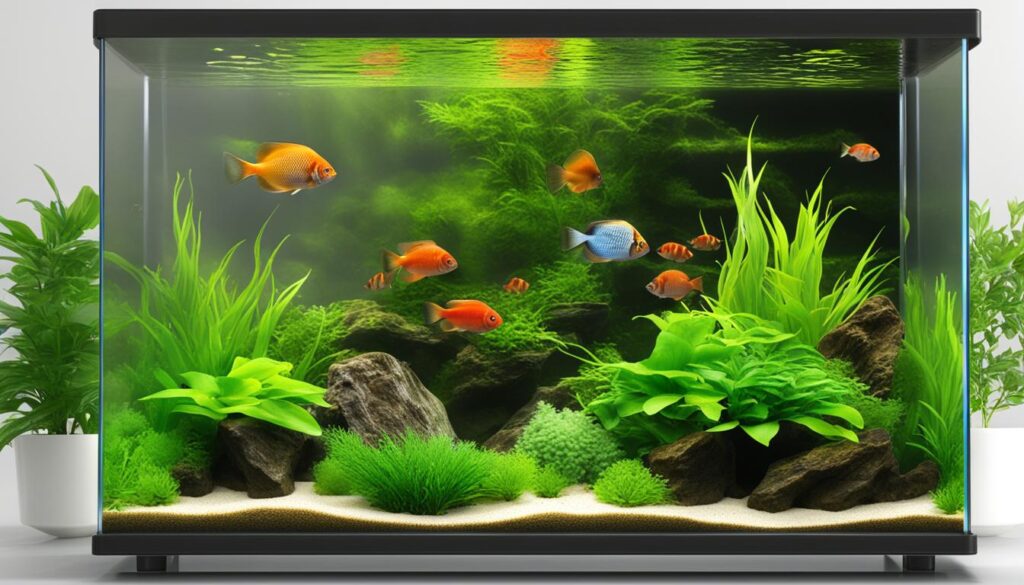
By implementing these practices, you can create an optimal environment for your discus fish and ensure their health and happiness. Remember to maintain ideal water parameters, monitor water quality, and provide regular maintenance for your filtration system. With these simple tips, your discus fish will thrive in their aquarium home.
Tips for Successful Discus Fish Keeping
Keeping discus fish requires attention to detail and dedication. Luckily, with a few simple tips, you can create the perfect conditions for your discus fish. Here are some of my top recommendations:
1. Monitor Water Parameters Regularly
Regularly monitoring the water parameters in your discus fish tank is crucial for maintaining water quality. Test the pH level, temperature, and other important parameters weekly to ensure they are within the optimal range.
2. Maintain Water Quality
Maintaining water quality is important for the health of your discus fish. Make sure to perform regular water changes, clean the tank, and replace filter media when necessary. This will help prevent harmful substances from building up.
3. Set Up the Perfect Discus Fish Tank
The right discus fish tank setup is key to creating a healthy environment for your fish. Make sure to choose the right tank size, use appropriate substrate, and add decor that provides hiding places for your discus fish.
4. Provide a Balanced Diet
A balanced diet is critical for keeping your discus fish healthy and vibrant. Feed your fish a variety of high-quality foods, including frozen and live options, and adjust their diet as needed.
5. Always Quarantine New Fish
If you are adding new fish to your discus fish tank, it’s important to quarantine them for at least two weeks to prevent the spread of diseases. This will help ensure the health of your existing fish.
By following these tips, you can maintain optimal conditions in your discus fish tank and enjoy healthy, happy fish for years to come.
Conclusion
As a discus fish enthusiast, I know how rewarding it can be to maintain a healthy and vibrant tank. By following the guidelines in this guide, you can create the optimal conditions for your discus fish and ensure their well-being.
Remember that maintaining ideal water parameters is crucial for the health of your discus fish. Keep a close eye on pH levels, maintain the recommended water temperature, and monitor ammonia, nitrate, and nitrite levels. By doing so, you can prevent stress, disease, and even death in your discus fish.
Setting up a suitable tank and regularly maintaining water quality are also critical to keep your discus fish happy and healthy. Consider tank size, filtration, substrate, and decor, and be sure to perform regular water changes and filtration maintenance. With these practices, you can create a thriving environment for your discus fish.
I hope that this guide has provided you with valuable information on discus fish water parameters and optimal tank conditions. With a bit of knowledge and effort, you can enjoy a beautiful and healthy discus fish tank for years to come.
FAQ
What are the optimal water parameters for discus fish?
The optimal water parameters for discus fish include a pH level between 6.0 and 7.0, a water temperature between 82°F and 86°F, low ammonia levels, and appropriate nitrate and nitrite levels. It is important to maintain a balance between these parameters to ensure the health and well-being of your discus fish.
Why are water parameters important for discus fish?
Water parameters play a crucial role in the overall health and well-being of discus fish. Maintaining ideal conditions is essential to prevent stress and maintain a strong immune system. Even slight deviations from optimal parameters can impact the health and longevity of your discus fish.
What is the recommended pH level for discus fish?
Discus fish thrive in slightly acidic water conditions. It is recommended to maintain a pH level between 6.0 and 7.0 in your discus fish tank to provide them with the ideal environment. Regular monitoring and adjustments may be necessary to ensure the pH level remains within the desired range.
What is the recommended water temperature for discus fish?
Discus fish are native to warm waters, so it is important to maintain a suitable water temperature in your tank. The recommended water temperature for discus fish is between 82°F and 86°F. Using a reliable heater and regularly monitoring the temperature will help ensure optimal conditions for your discus fish.
How do I maintain low ammonia levels for my discus fish?
Ammonia build-up can be extremely harmful to discus fish. To maintain low ammonia levels, ensure efficient filtration, perform regular water changes, avoid overfeeding, and monitor ammonia levels using a reliable test kit. Keeping ammonia levels in check is vital for the health and well-being of your discus fish.
How do I maintain appropriate nitrate and nitrite levels for my discus fish?
Elevated nitrate and nitrite levels can be detrimental to discus fish. Regular water testing and appropriate water changes are crucial to keep these levels in check. Avoid overstocking your tank, maintain a balanced feeding schedule, and use effective filtration methods to prevent excessive nitrate and nitrite accumulation.
What are the ideal water parameters for discus fish?
The ideal water parameters for discus fish include a pH level between 6.0 and 7.0, a water temperature between 82°F and 86°F, low ammonia levels (ideally 0 ppm), nitrate levels below 20 ppm, and nitrite levels below 0.5 ppm. These parameters create a healthy and conducive environment for your discus fish.
How should I set up a discus fish tank?
When setting up a discus fish tank, consider factors such as tank size, filtration, substrate, and decor. Discus fish require ample space and a properly sized tank. Use a reliable filtration system to maintain cleanliness and create a stable and healthy environment. Choose a suitable substrate and decor that mimics their natural habitat.
How do I maintain water quality for my discus fish?
Regular maintenance is essential to ensure optimal water quality for your discus fish. Perform regular water changes to remove pollutants and maintain proper filtration to eliminate waste. Monitor water parameters, such as pH, temperature, ammonia, nitrate, and nitrite levels, and make appropriate adjustments when necessary.
What are some tips for successful discus fish keeping?
To successfully keep discus fish, monitor water parameters regularly, provide a balanced and nutritious diet, maintain a clean and well-maintained tank, and observe their behavior for any signs of stress or illness. Creating a comfortable and healthy environment while offering proper care and attention will contribute to their overall well-being.
References
The International Discus Association (IDA)
The Discus World International (DWI)
Please also check out other articles on this website like:
Master Breeding Techniques for Angelfish – A Guide for Hobbyists
Mastering Dwarf Puffer Fish Care: A Friendly Guide
Male or Female Betta? How to Tell – Your Ultimate Guide
Complete Guide to Plecostomus Tank Size: Tips and Advice
Simple Guide to Easy-to-Care-for Aquarium Plants
Discover the Diverse Corydoras Catfish Varieties- A Guide
Get to Know Various Types of Algae Eaters
Master Guide: Best Water Parameters for Goldfish Care 2023-24
Mastering Black Ghost Knife Fish Care: A Comprehensive Guide
Optimal pH Levels for Tropical Fish: Essential Aquarium Guide
Discovering Freshwater Snail Species: An In-depth Guide
Expert Tips for Breeding Guppies: Keys to Successful Fishkeeping
Discover Peaceful Community Fish: Your Guide to Calm Aquatics
Ultimate Guide to Live Food for Betta Fish — Healthy Choices
Complete Guide to Your Perfect Cichlid Tank Setup
Your Guide to the Best Substrate for Planted Aquariums
Essential Guide to Discus Fish Care: Help Your Pets Thrive!
Grow Your Own Eden: Beginner-Friendly Aquascaping Plants Guide
Perfect Neon Tetra Tank Mates: Guide to Aquarium Harmony
Product Review of Eheim Classic vs Professional
The Ultimate Guide to Discus Fish Care
What Fish Can Live With Discus?
Ideal pH for Discus Fish | Aquarium Water Guide
How to Sex Discus Fish?: A Simple Guide for Hobbyists
Complete Discus Fish Tank Setup Guide
Can Discus Fish Live With Angelfish? The Complete Guide
Discus Diet Guide: What Do Discus Fish Eat?
Are Discus Fish Hard to Keep? Insights & Tips.
I am a passionate aquarist with over 30 years of hands-on experience in fishkeeping. My journey began at a young age, collecting fish from the wild and learning through experimentation. Specializing in tropical fish, I bring a deep understanding of the hobby to FishKeepingMadeSimple. The site provides honest, detailed reviews of essential products and accessories to help fellow enthusiasts create the best environments for their fish.

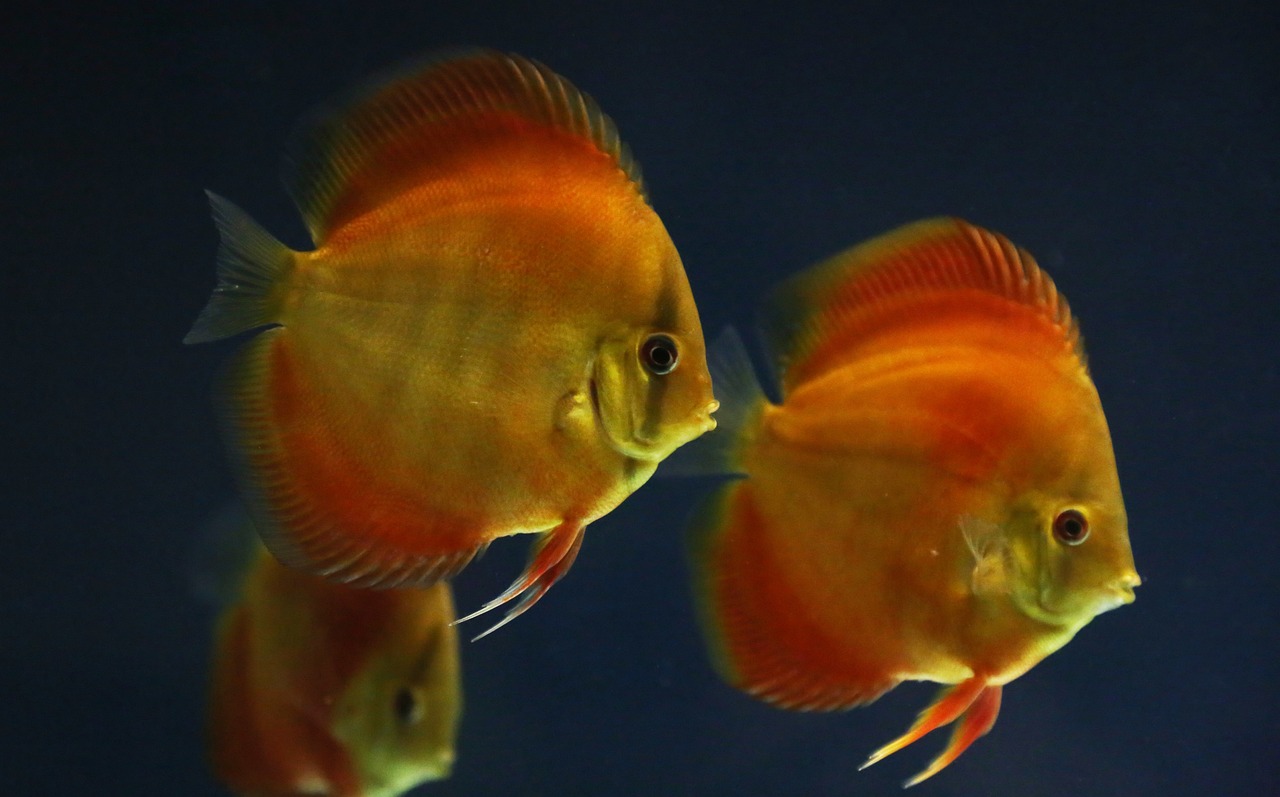
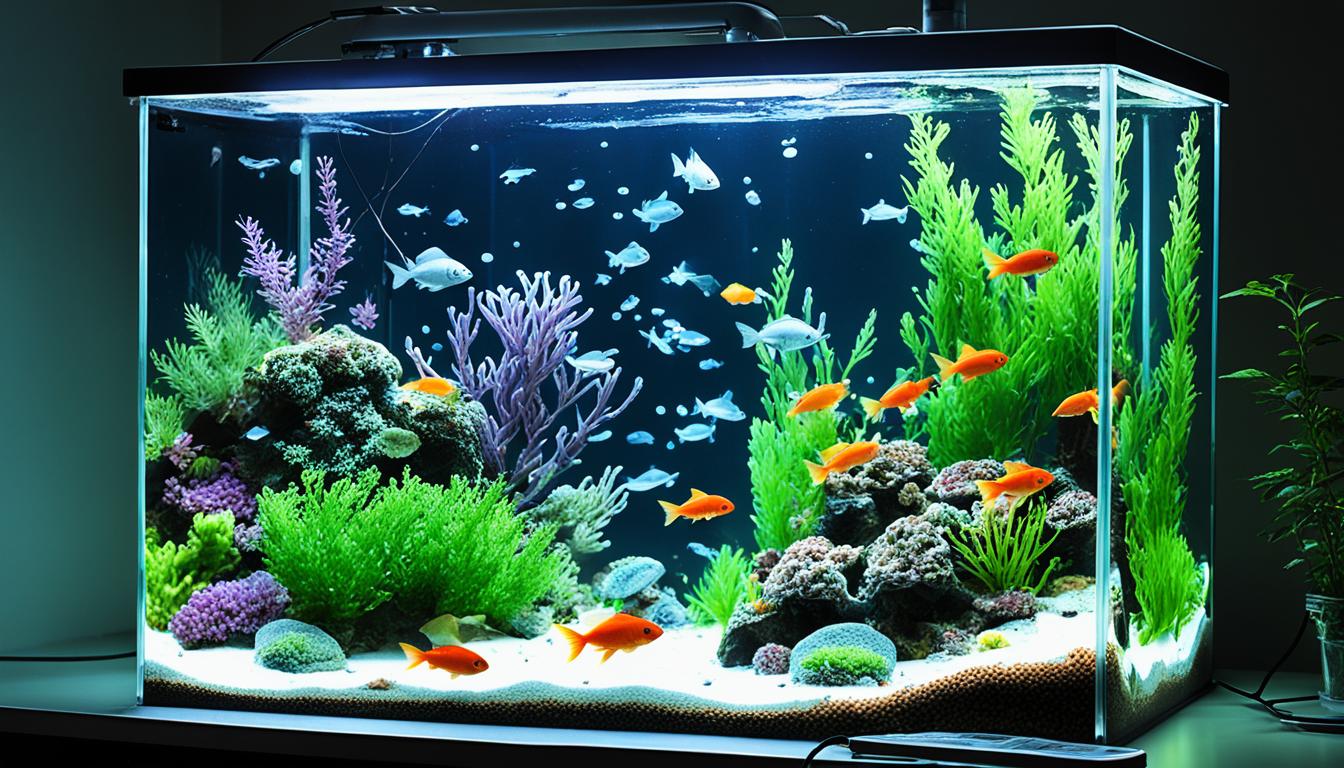
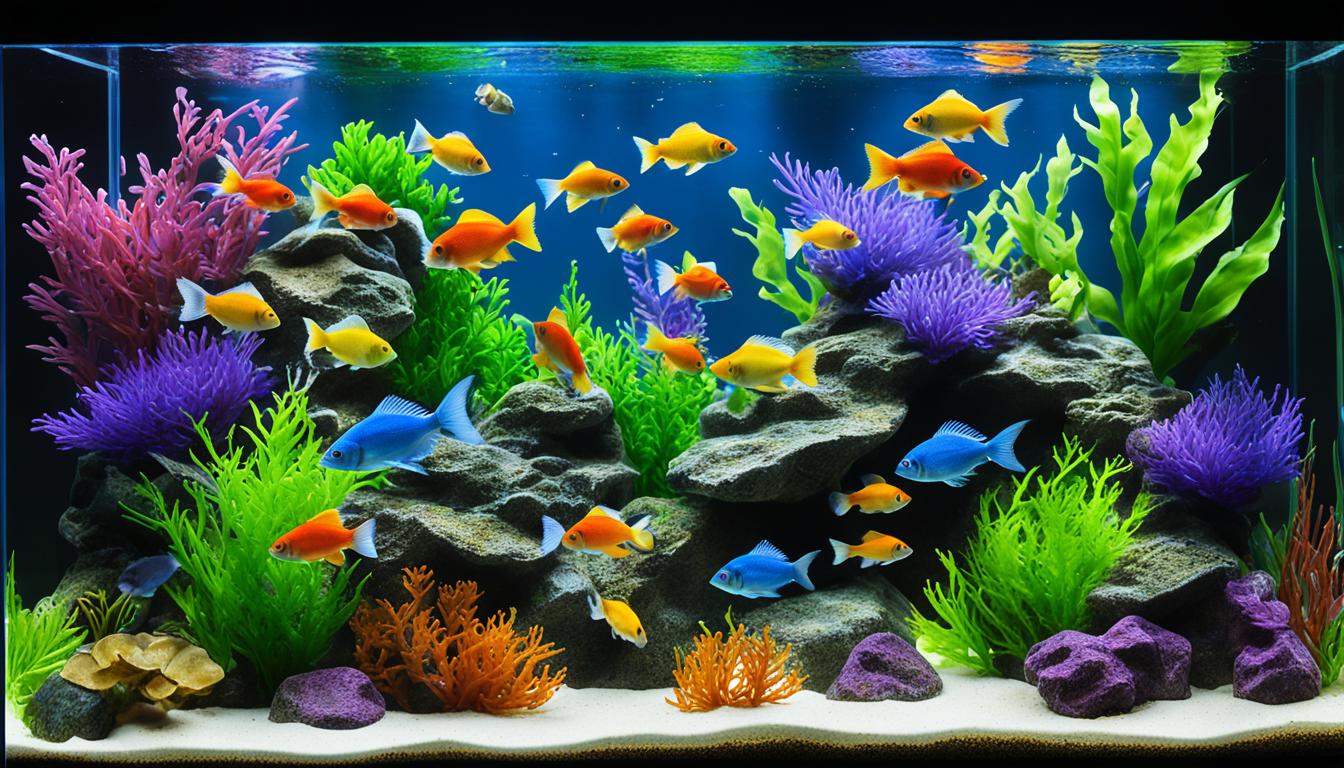


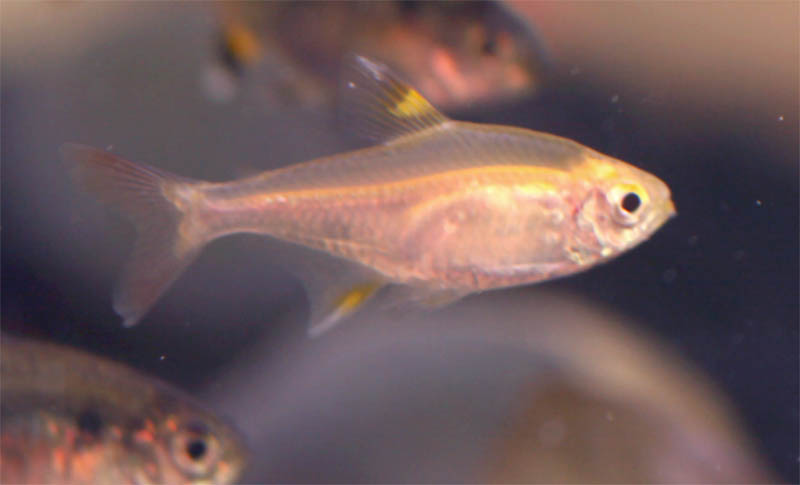
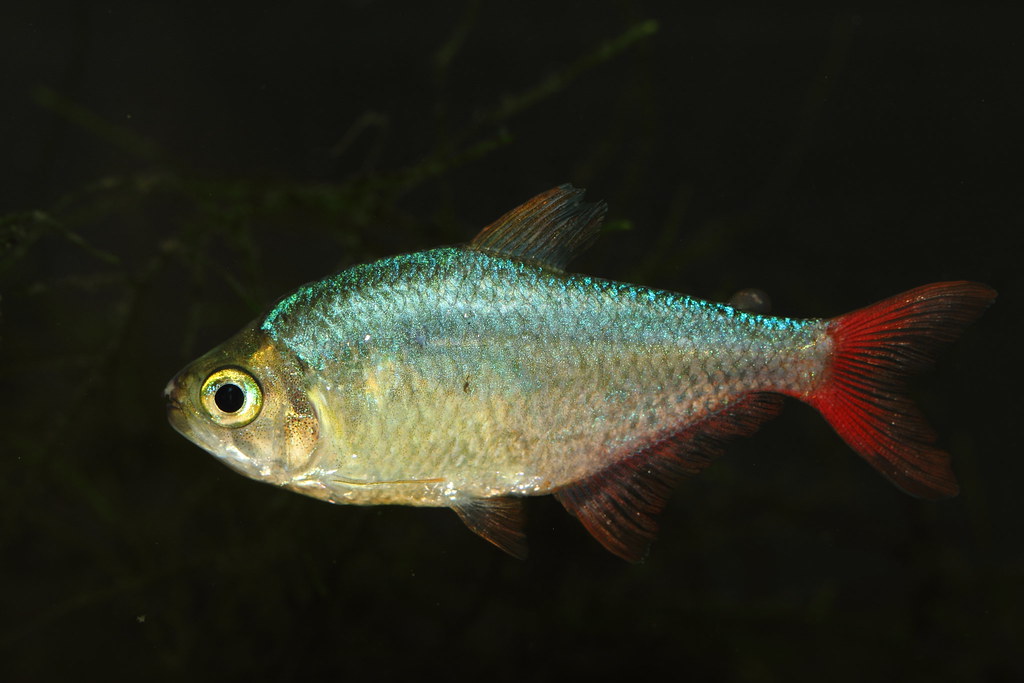
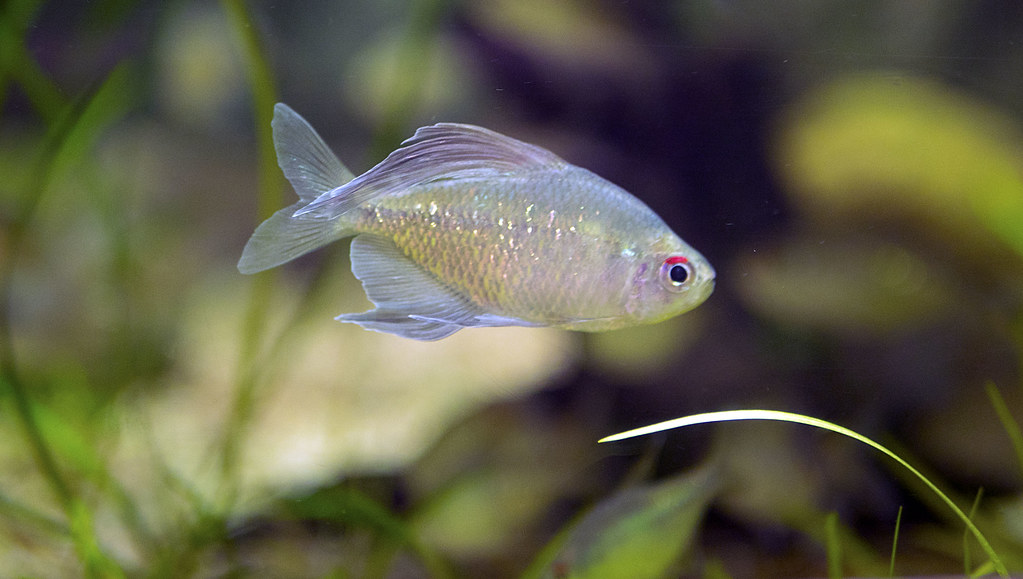
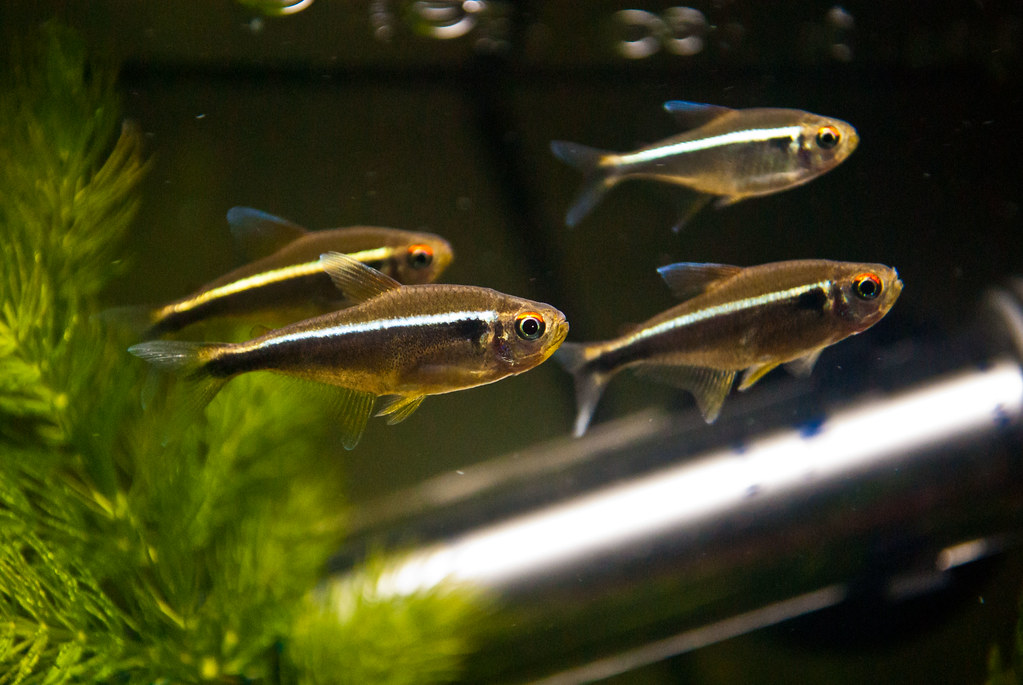
[…] Water Parameters […]
[…] Barbs as the centerpiece, consider incorporating various compatible species that share similar water parameter requirements. This will promote a harmonious environment and reduce potential conflicts. Here is an […]
[…] crucial to consider their compatibility in terms of size and temperament. Opting for non-aggressive fish species that share similar water parameter requirements is key to maintaining a peaceful community […]
[…] is crucial for their overall health and well-being. Proper filtration, adequate space, and suitable water parameters can help reduce stress and make your fish less susceptible to […]
[…] often you should change the water depends on how many fish you have and how much you feed them. Testing the water for nitrates tells you when it’s time […]
[…] monitoring and testing of water parameters can help maintain optimal […]
[…] quality: Maintaining optimal water parameters is crucial. This includes regular monitoring of temperature, pH levels, ammonia, nitrite, and […]
[…] your fish community, study which ones get along with electric blue rams. Choose calm, similar-sized fish that need the same water conditions. This will make a happy home for your rams. A 60-liter tank forum suggests small tetras […]
[…] tank mates for Red Rainbowfish, it’s important to choose peaceful species that share similar water parameters and temperament. Here are some compatible tank mates for Red […]
[…] talk about avoiding mistakes in water parameters, feeding, disease prevention, and more. This guide is for both new and experienced shrimp keepers. […]
[…] the water quality stable is crucial. The right water parameters help these sensitive creatures thrive in your […]